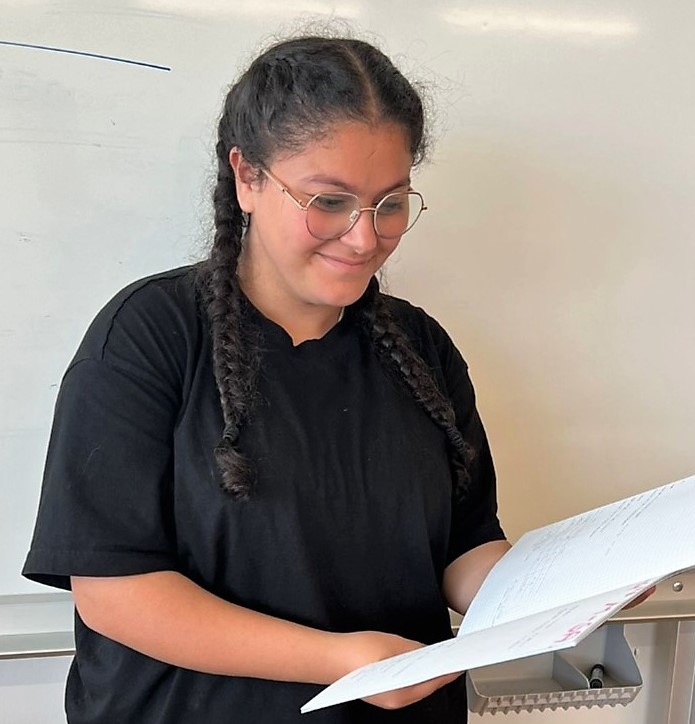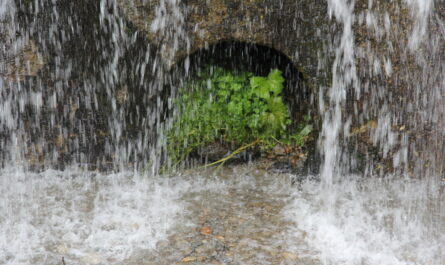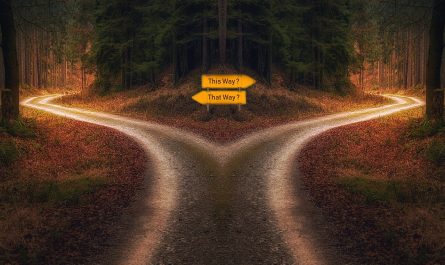January 18, 2025, with Sandra and Andrew Milne-Skinner
A: We first met you, Lana, through the Freundeskreis für Integration here in Inzing, when you came to the Friday evening sessions, with your mother Ghada. The then minister here in Inzing. Andreas Tausch, supported you….and I can well remember you sitting with him and singing.
L: That’s right. I was very happy that there were so many people who supported us, and Andreas was a very big part in helping me gain my self-confidence.
S: You are now 16. Tell us how you came to Tirol, and how you have settled here.
L: We lived in Syria when the war started. It wasn’t good for bringing up three young girls. We then went to Turkey where our Dad was. But then we split up: my elder sister, aged 11, went to Holland. We wanted to join her in Holland. However, on the way, we were stopped by police in Italy. We told them that we were trying to get to Holland to meet up with my sister. They gave us the choice to stay in Italy or to come to Austria. Since then she has rejoined us here.
S: You have now been in Polling several years, and live in the Widum with your family, is that so?
L: We decided to go to Austria and we were brought to Vienna to a camp. We received a lot of charity and people were friendly and helpful to us, but the living conditions were not so good. We were then moved to Graz, where we shared a house with other families – an ‘upgrade’, and then we were granted asylum. We had made a friend in Graz, who was going to Tirol, so we asked to go there, too. That’s when we were offered the flat in the Widum in Polling by Luis Strasser and Andreas Tausch. We liked it very much and accepted their offer. Then my sister joined us in Polling.
A: How easy or difficult has it been for you and your family settling here?
L: Yes, in the Volksschule second class I was bullied by some girls who were somehow jealous of me. But by the age of 11 I was becoming self-confident and developing strength of character at the Neue Mittelschule in Inzing. In my class I gradually made new friends. My German improved so much through social contact and chatting with friends. English was my favourite subject at school, and my teachers, especially Anita Wutz, really encouraged me and constantly challenged me to improve. I owe her so much. I became really ambitious. In the Polytechnischer, in Telfs, we were treated as young adults. For example, when we wore casual clothes to school, like jogging pants, we were told: “You wouldn’t wear that if you were going to work.” In short, we were being prepared for the real world.
A: Last autumn, we were delighted to read in the Telfer Blatt and the Tiroler Tageszeitung how you had won the special award for speaking in a regional and then even in a national competition here in Austria. Do tell us what it was all about.
L: It started with a local competition in Telfs, then Innsbruck, and finally Vienna. Each time I gave an individual talk about my travelling from Syria, via Turkey, to Austria.
S: Did you get any special coaching to perform in these competitions?
L: Only partly. The teacher in Telfs listened and gave special tips. We had to write our own scripts.
S: Why do you think it is that you, a ‘foreigner’ – so to speak! – managed to win these competitions?
L: Well, some people said that I only won because the jury had sympathy for me having heard my story. But I don’t accept that. This was a professional jury, who didn’t know me. But because it was my own story, I personalized it with real force, telling them about the whole harrowing experience. Some of the jury were reduced to tears during my talk, and this made me cry, too.
A: You have a natural performing instinct. What would you say to other Syrians like yourself about going to school and studying here in Tirol?
L: I wanted to be a voice….a voice for those here who are voiceless. I believe in ‘Never give up’: that is my motto, even if you meet so many difficulties. Invest your anger and energy in studying.
S: How do you see your future here in Tirol? What do you wish to do?
L: I am about to start a 3-year apprenticeship as a shop assistant with DM in Innsbruck, and at the same time start studying for the Matura. Ultimately, I want to study at either the University or Pädagogische Hochschule, and become an English teacher.
A: How come your English is so good?
L: Well, I’ve watched so many TV shows in English, and have picked up so much language that way. But I don’t have much chance to speak English.
A: Well, you’ve given us this interview in English! Thank you. As a Syrian teaching English in Austria you would have an important role in bridging an intercultural gap. We would like to thank you very much for giving us this interview, and wish you every success in your future life here.
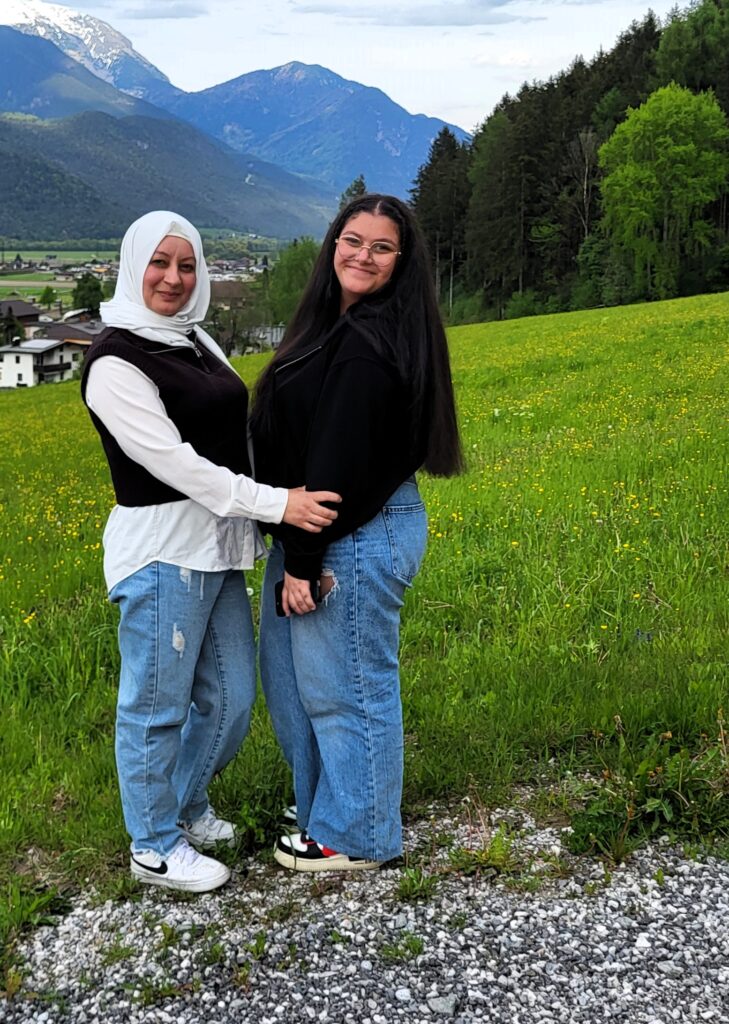

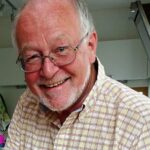 von
von 